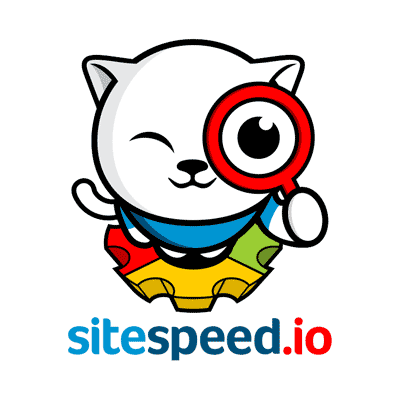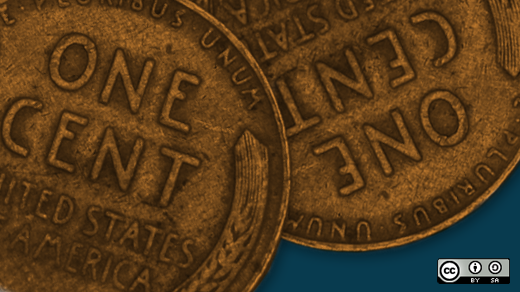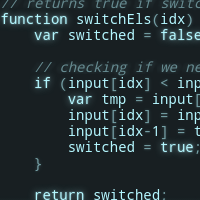Fawkes
Wed, 26 Aug 2020 21:27:30 +0200
#^Fawkes


So how do we protect ourselves against unauthorized third parties building facial recognition models that recognize us wherever we may go? Regulations can and will help restrict the use of machine learning by public companies but will have negligible impact on private organizations, individuals, or even other nation states with similar goals.
The SAND Lab at University of Chicago has developed Fawkes1, an algorithm and software tool (running locally on your computer) that gives individuals the ability to limit how unknown third parties can track them by building facial recognition models out of their publicly available photos. At a high level, Fawkes "poisons" models that try to learn what you look like, by putting hidden changes into your photos, and using them as Trojan horses to deliver that poison to any facial recognition models of you. Fawkes takes your personal images and makes tiny, pixel-level changes that are invisible to the human eye, in a process we call image cloaking. You can then use these "cloaked" photos as you normally would, sharing them on social media, sending them to friends, printing them or displaying them on digital devices, the same way you would any other photo. The difference, however, is that if and when someone tries to use these photos to build a facial recognition model, "cloaked" images will teach the model an highly distorted version of what makes you look like you. The cloak effect is not easily detectable by humans or machines and will not cause errors in model training. However, when someone tries to identify you by presenting an unaltered, "uncloaked" image of you (e.g. a photo taken in public) to the model, the model will fail to recognize you.
Thu, 21 Jun 2018 00:36:32 +0200
#^Open Source Studie 2018
Seit 2003 befragen swissICT und CH Open im Rahmen der Open Source Studie alle drei Jahre Schweizer Unternehmen und Behörden zu Anwendungsgebieten, Einsatzgründen sowie Hindernissen von Open Source Software. Durchgeführt wird die Studie seit 2015 von der Forschungsstelle Digitale Nachhaltigkeit der Universität Bern.
Measure Sitespeed
Wed, 20 Jun 2018 17:41:42 +0200
Wonderful tool(s)! The Docker image is 1,6GB big, but it does combine quite a lot of things and makes it very convenient to use. In contrast to other such performance tools sponsored by a big company, Sitespeed.io complains about GA and GTM usage. 
#^Sitespeed.io - Welcome to the wonderful world of Web Performance

The TSDB is something I want add to our monitoring server.

#^Sitespeed.io - Welcome to the wonderful world of Web Performance

Sitespeed.io is a set of Open Source tools that makes it easy to monitor and measure the performance of your web site.
Measuring performance shouldn’t be hard: you should be able to have full control of your metrics, own your own data and you should be able to do it without paying top dollars.
That’s why we created sitespeed.io.
The TSDB is something I want add to our monitoring server.
Retargetable Decompiler
Wed, 20 Dec 2017 20:37:42 +0100
#^Retargetable Decompiler
RetDec is an open-source machine-code decompiler based on LLVM.
The decompiler is not limited to any particular target architecture, operating system, or executable file format:
* Supported file formats: ELF, PE, Mach-O, COFF, AR (archive), Intel HEX, and raw machine code.
* Supported architectures (32b only): Intel x86, ARM, MIPS, PIC32, and PowerPC.
copyright profiteering
Fri, 25 Aug 2017 12:25:25 +0200
#^Patrick McHardy and copyright profiteering


Many in the open source community have expressed concern about the activities of Patrick McHardy in enforcing the GNU General Public License (GPL) against Linux distributors. Below are answers to common questions, based on public information related to his activities, and some of the legal principles that underlie open source compliance enforcement.
171 words
Fri, 30 Sep 2016 17:11:58 +0200
#^/dev/lawyer The MIT License, Line by Line
The MIT License is the most popular open-source software license. Here’s one read of it, line by line.
Read the License
If you’re involved in open-source software and haven’t taken the time to read the license from top to bottom—it’s only 171 words—you need to do so now. Especially if licenses aren’t your day-to-day. Make a mental note of anything that seems off or unclear, and keep trucking. I’ll repeat every word again, in chunks and in order, with context and commentary. But it’s important to have the whole in mind.
Prototype Fund
Tue, 09 Aug 2016 22:13:26 +0200
1,2 Millionen € für Open-Source-Projekte
Der Prototype Fund unterstützt Softwareentwickler*innen, Hacker*innen und Kreative dabei, ihre Ideen vom Konzept bis zur ersten Demo zu entwickeln.
Mit einer Förderung von bis zu 30.000€ könnt Ihr sechs Monate lang Code schreiben und Open-Source-Prototypen entwickeln. Wir fördern Projekte in den Bereichen Civic Tech, Data Literacy und Datensicherheit.
Der Prototype Fund ist ein Projekt der Open Knowledge Foundation Deutschland e. V., das vom Bundesministerium für Bildung und Forschung (BMBF) gefördert wird.
Microlight
Tue, 31 May 2016 18:01:28 +0200
nice!
#^microlight.js (2.2k)

#^microlight.js (2.2k)

Highlights code in any programming language
Unlike other code-highlighting solutions, microlight.js does not keep a set of rules for most languages. Instead it uses a general highlighting strategy providing a reasonable highlight for most of programming languages.
tcconfig
Wed, 16 Mar 2016 21:21:46 +0100
#^thombashi/tcconfig
tcconfig - Simple tc command wrapper. Easy to setup traffic control of network bandwidth/latency/packet-loss/packet-corruption to network interfaces.
MailHog
Tue, 08 Dec 2015 18:18:23 +0100
Byebye MailCatcher
#^mailhog/MailHog
#^mailhog/MailHog
MailHog - Web and API based SMTP testing
Inspired by MailCatcher, easier to install.
Icinga 2.2
Mon, 17 Nov 2014 14:51:57 +0100
Waiting for Icinga Web 2.
#^Icinga 2 release 2.2.0 – Agent, Cli & Apply For Rules | Icinga

#^Icinga 2 release 2.2.0 – Agent, Cli & Apply For Rules | Icinga

by Michael Friedrich | Nov 17, 2014
When releasing Icinga 2 in its final version, we got quite a lot of feedback on why there is no agent, and how to monitor remote clients. Back in the beginning of 2014 we already had an idea on how to implement it, but you’d better design, re-design and even re-design such an i...
Bosun monitoring & alerting
Fri, 14 Nov 2014 16:22:13 +0100
#^Announcing Bosun, our new open source monitoring & alerting system « Blog – Stack Exchange

Sounds quite good. They also have a very interesting looking build system based on #Docker.

If trees could scream, would we be so cavalier about cutting them down? We might, if they screamed all the time, for no good reason. - Deep Thoughts, by Jack Handey A big part of scaling up an engineering team is getting serious about monitoring and alerts. A good monitoring system collects data from all of your various systems — for example, how...
Sounds quite good. They also have a very interesting looking build system based on #Docker.
Piwik 2.7.0 - "scary new features release"
Thu, 25 Sep 2014 09:04:22 +0200
#^Piwik 2.7.0 - Analytics Platform - Piwik
User-ID, cross websites reporting, ContentTracking, PSR-4
Explore our business offer Piwik 2.7.0 is a new major release of Piwik! In this release we have packed several major new features and many small improvements. The new features in this release are: User ID, New Pivot Table feature for Events reports, new plugin to count users visiting several of your websites, new Content Tracking plugin, new Browse...
User-ID, cross websites reporting, ContentTracking, PSR-4

awesome-sysadmin
Fri, 27 Jun 2014 11:45:11 +0200
#^kahun/awesome-sysadmin
awesome-sysadmin - A curated list of amazingly awesome open source sysadmin resources inspired by Awesome PHP.
Q Light Controller
Sat, 10 May 2014 23:45:04 +0200
Got quite shocked when I saw that the amazing lighting control program QLC (Q Light Controller) by Heikki Junnila was not developed any further anymore. 


#^Q Light Controller
I loved this program and also had my first programming experiences with QT with this program. Have just done some small fixes, tiny new features and translation. At the end I tried to implement a bigger new feature some kind of a textbook that could be used to run theatre plays or other text centric shows. I had an editor and all functions to add and control scene changes and in the end I had a massive QTextDocument with a lot of blocks and metadata with all the scenes, but failed to store and restore it, so it never made it into QLC. There is a QT feature request for some years already, but it is still not implemented.
There is a QT feature request for some years already, but it is still not implemented.
Unfortunately I haven't had much time and occasions to play with my lights and QLC in the last two years, too. There was a fork and Massimo Callegari took over the development of QLC and it is called now QLC+ and got some very impressive and great new features! Really impressive the progress and nice to see that there is still an open source alternative to all the commercial lighting control softwares.
#^QLC+ by Massimo Callegari



#^Q Light Controller
Q Light Controller is a cross-platform application for controlling DMX or analog lighting systems like moving heads, dimmers, scanners etc. The goal is to replace hard-to-learn and somewhat limited commercial lighting desks with FLOSS. Many people respect others opinions and therefore might like to see some ...
I loved this program and also had my first programming experiences with QT with this program. Have just done some small fixes, tiny new features and translation. At the end I tried to implement a bigger new feature some kind of a textbook that could be used to run theatre plays or other text centric shows. I had an editor and all functions to add and control scene changes and in the end I had a massive QTextDocument with a lot of blocks and metadata with all the scenes, but failed to store and restore it, so it never made it into QLC.
 There is a QT feature request for some years already, but it is still not implemented.
There is a QT feature request for some years already, but it is still not implemented.Unfortunately I haven't had much time and occasions to play with my lights and QLC in the last two years, too. There was a fork and Massimo Callegari took over the development of QLC and it is called now QLC+ and got some very impressive and great new features! Really impressive the progress and nice to see that there is still an open source alternative to all the commercial lighting control softwares.
#^QLC+ by Massimo Callegari
QLC+ is a free and cross-platform software to control DMX or analog lighting systems like moving heads, dimmers, scanners etc. This project is a fork of the great QLC project written by Heikki Junnila that aims to continue the development of QLC and to introduce new features. The primary goal is to bring QLC+ at the level of other lighting control ...
This website is tracked using the Piwik analytics tool. If you do not want that your visits are logged this way you can set a cookie to prevent Piwik from tracking further visits of the site (opt-out).
